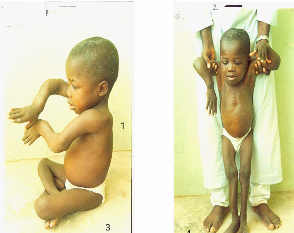The Water Wars in Northeast Nigeria
Amsatu is in her mid - 20’s and has just gone into labour for her fourth child. News has begun to go round in the village in Yunusari Local Government Area. Amsatu’s husband was seen walking breathlessly to the scene of the delivery in the house with the prominent traditional birth attendant in the village. On hearing the arrival of newborn, the women began to take their empty water cans to embark on a walk to the neighbouring village to fetch water. Water would be the most precious article in Amsatu’s home and the women would trek the 11 kilometre distance to fetch water.
Continue reading

